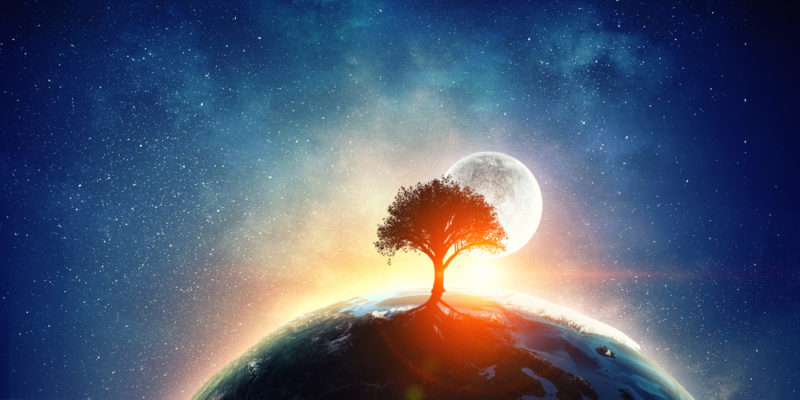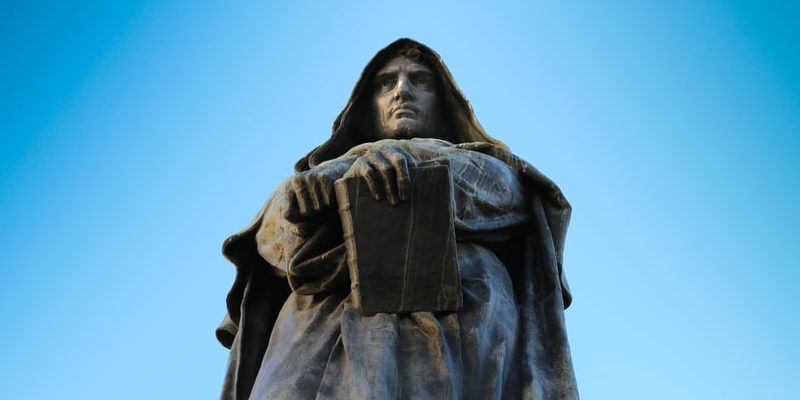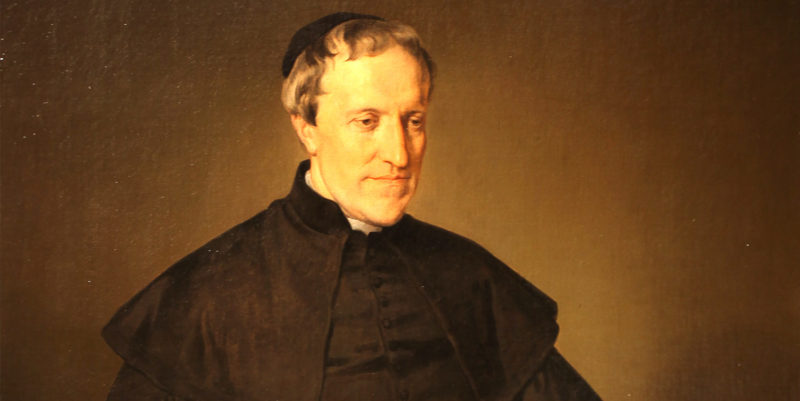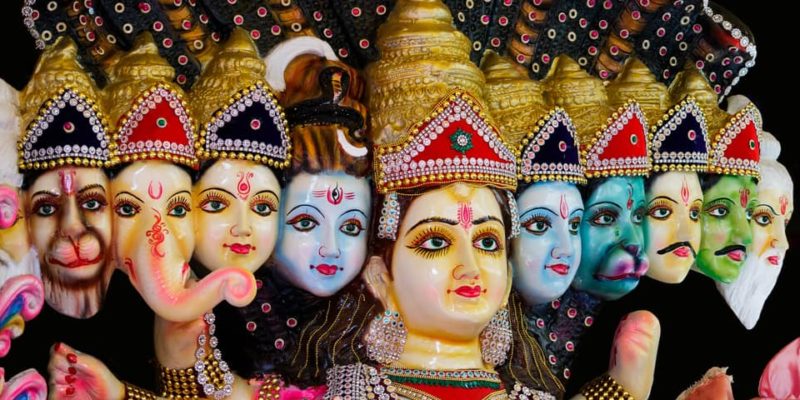We explain what pantheism is and why it is important. In addition, we explore its main characteristics and classification.

What is pantheism?
Pantheism is a philosophical doctrine that holds that "God", the universe, existence or god himself as understood by monotheistic religions are identical concepts. For pantheism, "God" is nothing more than a way of referring to natural law, to existence itself.
Pantheists believe that creator (God) and creation (the world and all that is created by divine work) are one and the same. This type of thinking is known as monism and is contrasted with the usual theism of most religions, in which "god" and "world" are conceptually opposed. Beyond the possible differences between the various types of historical pantheism, what they all have in common is the conception of reality as something immanent (closed in itself), which is the only thing that exists.
- See also: Dogmatism
Etymology of the term "pantheism"
The word "pantheism" derives from the combination of two Greek words: the neuter adjective pan (πᾶν), meaning "all" and the noun théos (θεός), meaning "god." Hence "pantheism" can be translated as "God in all".
Origin of pantheism

The term "pantheism" first appeared in Latin in De Spatio Reali su Ente Infinito by English mathematician Joseph Ralson, published in 1697. The origin of pantheism as a thought is unknown. However, marked traits of this system can be traced back to philosophers even prior to Ralson, such as John Scotus Eriugena (815-877 AD) or Nicholas of Cusa (1401-1464). Part of the principles of pantheism can also be found in the works of Giordano Bruno (1548-1600). These early studies gave way to the emergence of pantheism in the 16th century as a system in its own right, and served as a prelude to materialism and atheism.
What does pantheism entail?
The fundamental proposition of pantheism is that God and nature are one and the same thing. It is not a form of polytheism in which every aspect of nature is assigned a deity but rather, everything that exists constitutes a unity that can be called God. This includes objects, natural laws, astronomical bodies and the human being himself.
Pantheism does not propose a God as a distinct knowable entity, attainable by some type of method. Instead, the whole of reality is its divine manifestation, an emanation of God, who must be understood as the principle of what is but also as that which maintains its being.
Main thinkers of pantheism

- Giordano Bruno. Italian astronomer, philosopher, theologian and poet Giordano Bruno proposed various statements in his work regarding natural reality, found especially in his 1584 book On the Cause, the Principle, and the One. His pantheism, of an atheistic type, sees the universe as the "world soul", a universal intellect filling and permeating everything. Bruno’s ideas were revolutionary and differed those accepted and upheld by the Catholic Church, so much so that his work was banned by the Holy Inquisition and he himself was tried for heresy and burned at the stake.
- Baruch Spinoza. One of the seminal thinkers of 17th-century rationalism along with Leibniz and Descartes, the work of Dutch-Jewish philosopher Baruch Spinoza posed a profound rationalist challenge to the religious orthodoxy of the time. His assertion that "All that is, is in God, and without God nothing can exist or be conceived" (Ethics, XV) radicalizes substance monism and the finitude of modal individuals, making God explicit in his creation. His approach to pantheism can be considered panentheism (the belief in a God who encompasses the universe but is not limited to it), which was later criticized by philosophers such as Friedrich von Schelling.
- Scotus Eriugena. Irish philosopher of the Carolingian Renaissance, he lived, thought and wrote in the 9th century (810-877 BC). Though the academic community does not pronounce on Eriugena's pantheism, his affirmation regarding the unity and identity of God with creation, "Deus est omnia" (God is all things), undoubtedly places him on this list.
- Antonio Rosmini. 19th-century Italian thinker and philosopher, founder of the clerical order Instituto della carità, Antonio Rosmini authored a book that seeked out to contrast the Enlightenment with Sensism, attacking both empiricism and scholasticism. His work was condemned by the Catholic Holy See but was finally beatified in 2007.
- Pierre Teilhard de Chardin. A Jesuit priest devoted to philosophy and paleontology, he posited a very personal version of evolution, distancing himself from the struggle between science and religion in the late 19th and early 20th century. As a result, he was attacked by the church and ignored by science.
Types of pantheism
Two types of pantheism are often identified:
- Religious pantheism or acosmism. Its name originates in the idea of the existence of a divine reality as the sole true reality to which the world is reduced. According to this view, the world is a manifestation or emanation of God.
- Atheistic or naturalistic pantheism. It sees nature as the sole true reality to which God, an organic principle of nature itself, a self-consciousness of the universe is equated. According to this view, the God of monotheistic religions conceived as a separate entity does not exist.
Religion and pantheism

Most monotheistic religions, whose set of beliefs upholds the worship of a single true god, reject any pantheistic stance. They consider it pagan or close to idolatry as it replaces the worship of a true god with the worship of objects.
In other cases, such as Hindu polytheism, the views on the relationship between the world and the governing gods may come close to pantheism. These religions have a pantheon of gods that is almost infinite, identifying not only external but also internal aspects of the human being.
However, it is important to note that even in such cases the gods have an entity of their own. This means that they remain separate from the real world.
Panentheism and pandeism

Pantheism should not be confused with the following concepts:
- Panentheism. The difference with pantheism lies in that panentheism proposes a God who encompasses the universe but is not limited to it. This means that God is the creator of the universe, its vital energy, the source of all natural law. It is the conception of a transcendent God, distinct from the immanent conception of the divine proposed by pantheism
- Pandeism. It is a philosophical model resulting from the combination of pantheism and deism. It holds that the creator of the universe actually became the universe with his creation and ceased to exist as a separate entity. Pandeism attempts to answer why God would create the universe then only to abandon it.
Why is pantheism important?
As a philosophical doctrine, pantheism played a significant role in shaping Western culture. It was part of the painful transition from the religious thought pervading much of the Christian Middle Ages to the modern, rationalist, scientific thought which prevailed from the 17th century onwards.
As a prelude to the possibility of atheism and agnosticism, pantheism was important because, by unifying God with nature there was no further need for structured worship. Religious temples could thus be dispensed with since for pantheism, God has no specific entity which is recognizable through religious practice.
Current resignification
In present times, pantheism has been resignified by more idealistic and reactionary religious and philosophical schools. They use pantheism to reconcile scientific discourse with religion, as God encompasses everything, including scientific discovery.
Great examples of pantheistic systems can also be found in literature, television or cinema. Ideas such as The Force in Star Wars or the world envisioned by James Cameron in Avatar, are pantheistic conceptions of the universe, where the divine is presented immanently in creation.
References
- Arana, J. (2001). El panteísmo y sus formas. Revista de filosofía, 57, 5-18.
- Harrison, P. (2001). A Pantheist Vision of God: The Divine Universe. Expanding Humanitys Vision Of God, 251.
- Levine, M. P. (2002). Pantheism: A non-theistic concept of deity. Routledge.
- “Panteísmo” in el Diccionario Soviético de Filosofía.
- “Pantheism” in The Encyclopaedia Britannica.
Related articles:
Was this information useful to you?
Yes NoThank you for visiting us :)